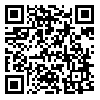Volume 3, Issue 2 (10-2022)
پژوهش های مابعدالطبیعی 2022, 3(2): 119-138 |
Back to browse issues page
Download citation:
BibTeX | RIS | EndNote | Medlars | ProCite | Reference Manager | RefWorks
Send citation to:



BibTeX | RIS | EndNote | Medlars | ProCite | Reference Manager | RefWorks
Send citation to:
Baghdadi S. The Morally Correct Behavior on the Problem of Suffering Theodicy: Do's and Don'ts. پژوهش های مابعدالطبیعی 2022; 3 (2) : 5
URL: http://mi.khu.ac.ir/article-1-206-en.html
URL: http://mi.khu.ac.ir/article-1-206-en.html
, s.baghdadi@ihcs.ac.ir
Abstract: (1664 Views)
This paper is aimed to explain the moral behavior toward the problem of suffering. The main question is what the morally correct behavior is as to the problem of suffering and what its essential concomitants are. Philosophers and theologians have endeavored to justify the existence of suffering in the world sometimes relying on purely intellectual efforts and sometimes by paying attention to propositions and reports of the scriptures and combining reason and narration. In this regard, they established theodicies and defenses that are meant for suffering. From this paper’s point of view, we must distinguish between two subjects: (i) the suffering; and (ii) the suffering person; and the concept of morally correct behavior on suffering is formed in line with this distinction. Do intellectual preoccupations such as theodicy and defense have something to do with the morally correct behavior toward suffering? Based on general two titles the answer is presented: theoretical foundations and management of the suffering situation, which respectively include the analysis and definition of concepts such as suffering, theodicy and defense, epistemological perspectives, and the like; and the essence of morally correct behavior on the problem of suffering. Indeed, subjects that will be discussed in the section on theoretical foundations will clarify the role of ethics in the problem of suffering in an analytical way and, leads us to the conclusion that theodicy, by its very nature, has nothing to do with morally correct behavior towards the problem of suffering and doesn’t care about it.
Article number: 5
Type of Study: Original Article |
Subject:
Philosophy
References
1. Cassell, Eric Jonathan. (1991). The Nature of Suffering and the Goals of Medicine. New York: Oxford University Press.
3. Gilbert, Paul. (2017). Human Nature and Suffering. London and New York: Routledge.
5. Gomila, Antoni; Pérez, Diana.(2018). “Mental Attribution in Interaction: How the Second Person Perspective Dissolves the Problem of Other Minds”. Daimon, Revista International de Filosofía. Pp. 75-86.
6. Neusner, Jacob. (1998). Evil and Suffering. Eugene: Wipf and Stock.
8. Pauen, Michael. (2012). “The Second-Person Perspective” . Inquiry . Pp. 1-33.
10. Riddle, J. E. (1843). A Complete English-Latin and Latin-English Dictionary. London: Longman.
12. Rizzolatti, Giacomo; Fogassi, Leonardo; Gallese, Vittorio.(2006). “Mirrors In The Mind”. Scientific American. Vol.. 295. No. 5. Pp. 54-61.
14. Stump, Eleonore. (1994). “The Mirror of Evil”. In Thomas V. Morris.(ed.). God and Philosophers: the Reconciliation of Faith and Reason. Oxford: Oxford University Press.
15. Pourmohammadi, Naemeh (1397), About Evil, 2 volumes, Qom: Taha Press.
16. Roth, John K (1397), “A Theodicy of Protest” In Naemeh Pourmohammadi,
(ed.), About Evil, Vol.2, Qom: Taha Press.
17. Trakakis, Nick (1397), “Antitheodicy” In Naemeh Pourmohammadi, (ed.), About Evil, Vol.1, Qom: Taha Press.
Send email to the article author
| Rights and permissions | |
 |
This work is licensed under a Creative Commons Attribution-NonCommercial 4.0 International License. |







